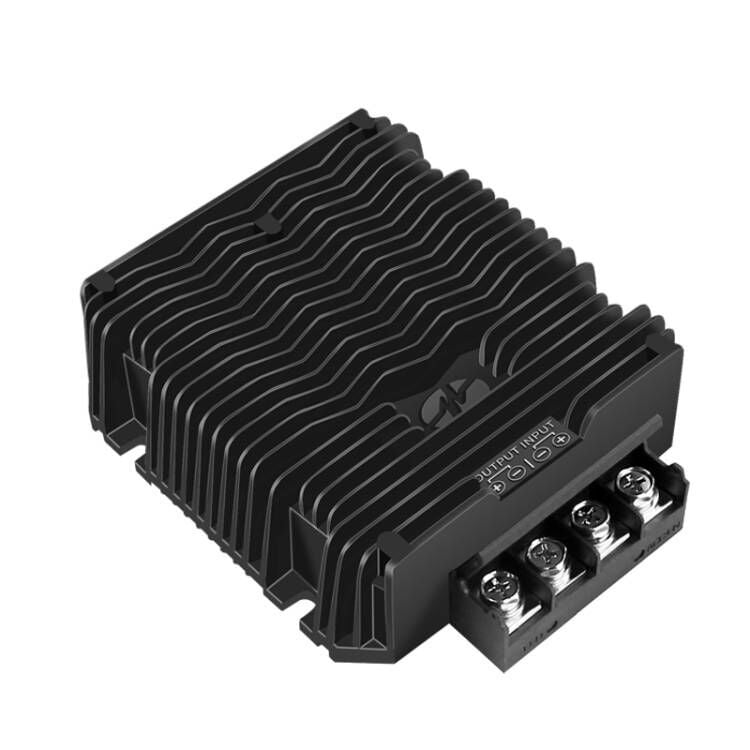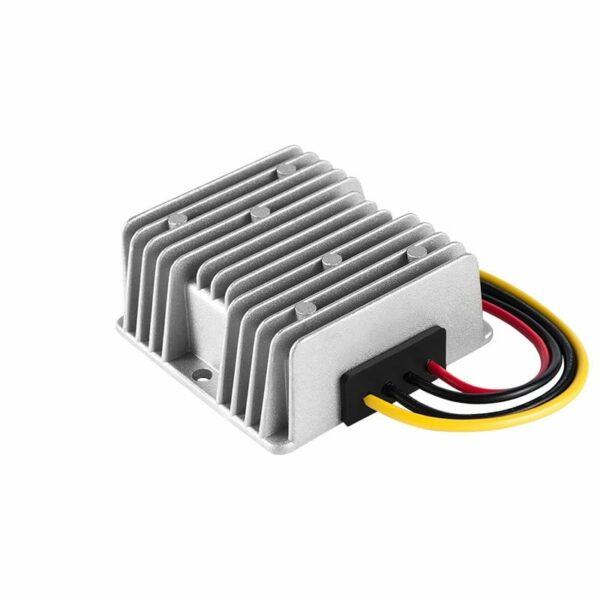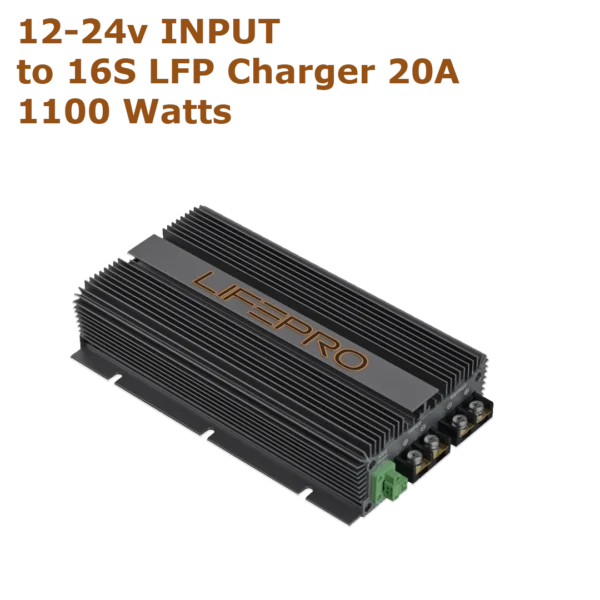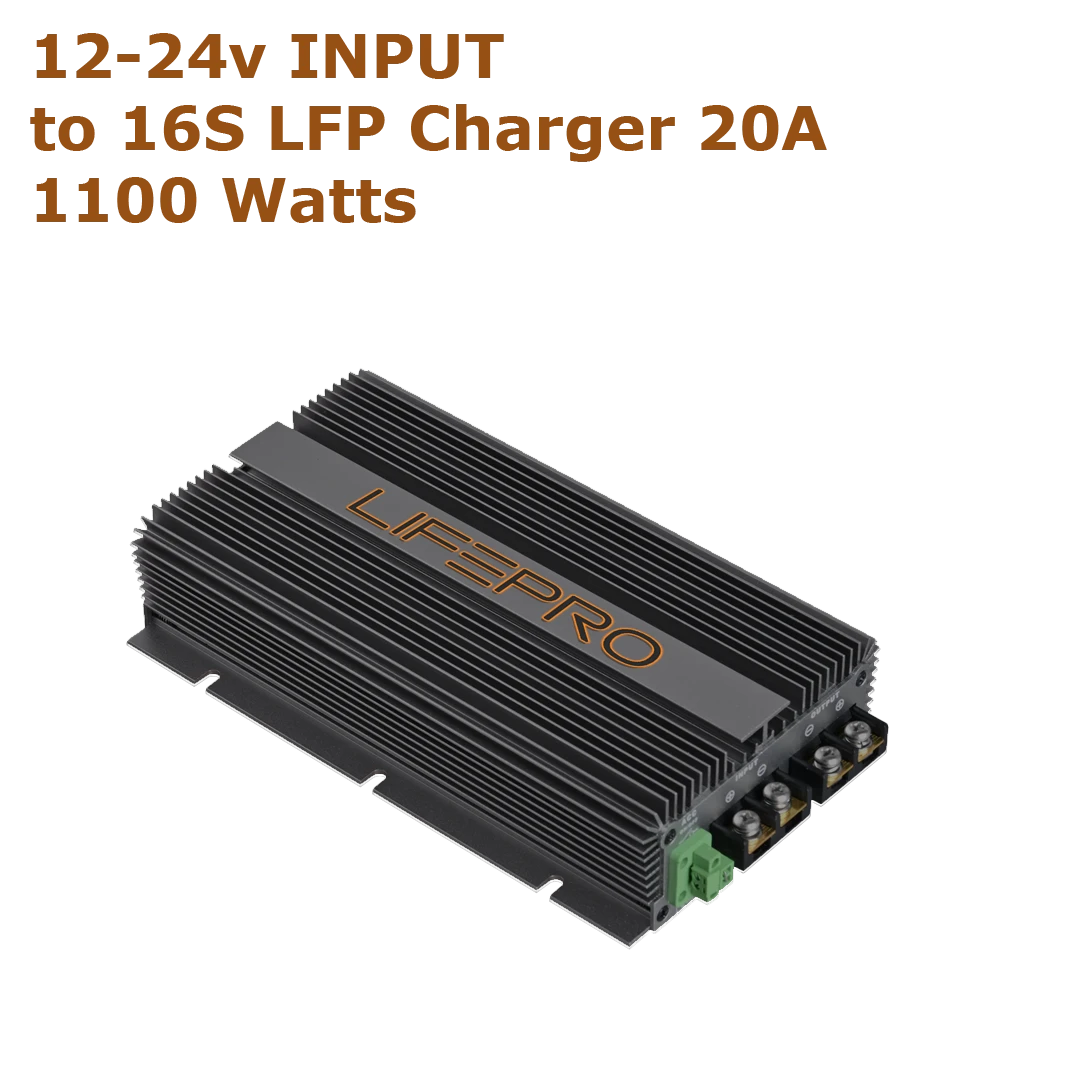Description
DC Converter 48V to 12V
Models available
48v – 12v Up to 80A
48v – 12v Up to 100A
DELIVERY TIME
about 12-20 Days on average.
We do not stock them in our warehouse.
Input Voltage range – 30-60V DC
Output Voltage – 12v DC
Conversion Efficiency is up to 96% (usually lower)
| Parameter | 48V to 12V80A | 48V to 12V100A |
|---|---|---|
| Input voltage range | 48V (30-60V) | 48V (30-60V) |
| Output voltage | DC12V | DC12V |
| Output Current | 80A | 100A |
| Output Power | 960W | 1200W |
| Conversion Efficiency | up to 96% | up to 96% |
| Ripple & Noise | 62~200mVp-p 20MHz | 62~200mVp-p 20MHz |
| Waterproof Grade | IP67 | IP67 |
| Working Environment Temperature | -40°C ~ +50°C | -40°C ~ +50°C |
| Product Size | 140 x 120 x 42.5mm | 140 x 120 x 42.5mm |
| Product Weight | About 1.2kg | About 1.2kg |
Protection Functions Over-current, short-circuit, over-temperature, and output over-voltage (TVS) protection functions
Derating the output by 25-50% is often a good idea, especially in scenarios where the DC-DC converter may be subjected to harsh conditions, such as:
- High Ambient Temperatures: If the converter operates in an environment where temperatures approach or exceed its specified operating range (-40°C to +50°C), performance may degrade. Derating helps ensure reliability and longer lifespan.
- Continuous High Load: Running a converter at or near its maximum output continuously could lead to overheating, reduced efficiency, or premature failure. Derating allows for smoother operation and improved reliability.
- Unstable Input Voltages: If your input voltage fluctuates or approaches the lower or upper end of the specified input voltage range (48V, but can be between 30-60V), derating provides a safety margin to account for potential drops in efficiency.
A 25-50% derate is reasonable and would result in:
- 48V to 12V80A model: Output derated from 960W to 720W or 480W
- 48V to 12V100A model: Output derated from 1200W to 900W or 600W
This would provide a buffer against potential stress on the components, ensuring a longer lifespan and reducing the risk of failure under peak loads. Derating is especially prudent if you’re using the converters in demanding applications like off-grid systems, vehicles, or industrial settings.







